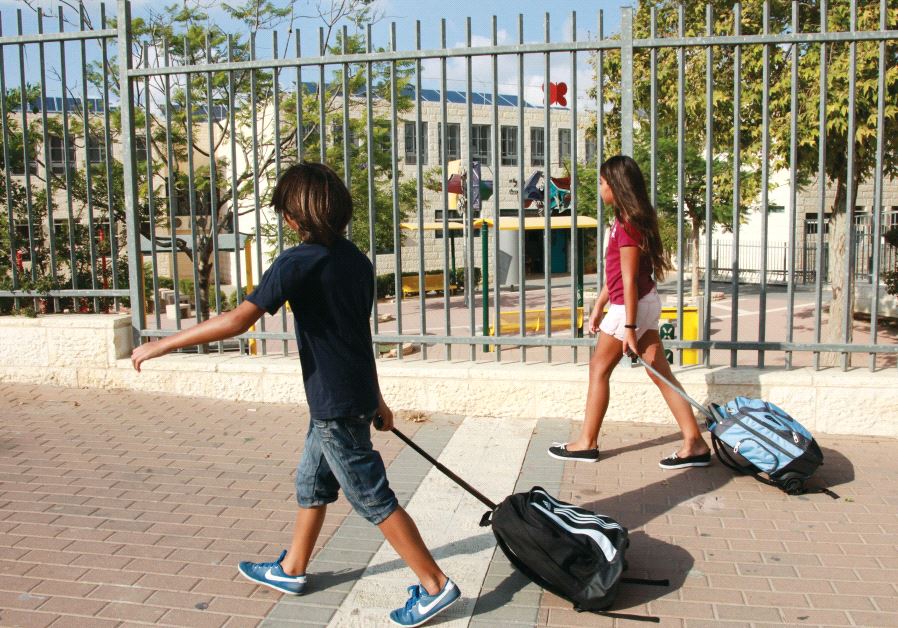Private and public schooling in Israel – not what you thought
Another advantage of the mamlachti dati schools over the torani schools is that they are inclusive of people from all circles and all walks of life.
 Children on their way to school(photo credit: MARC ISRAEL SELLEM)
Children on their way to school(photo credit: MARC ISRAEL SELLEM)